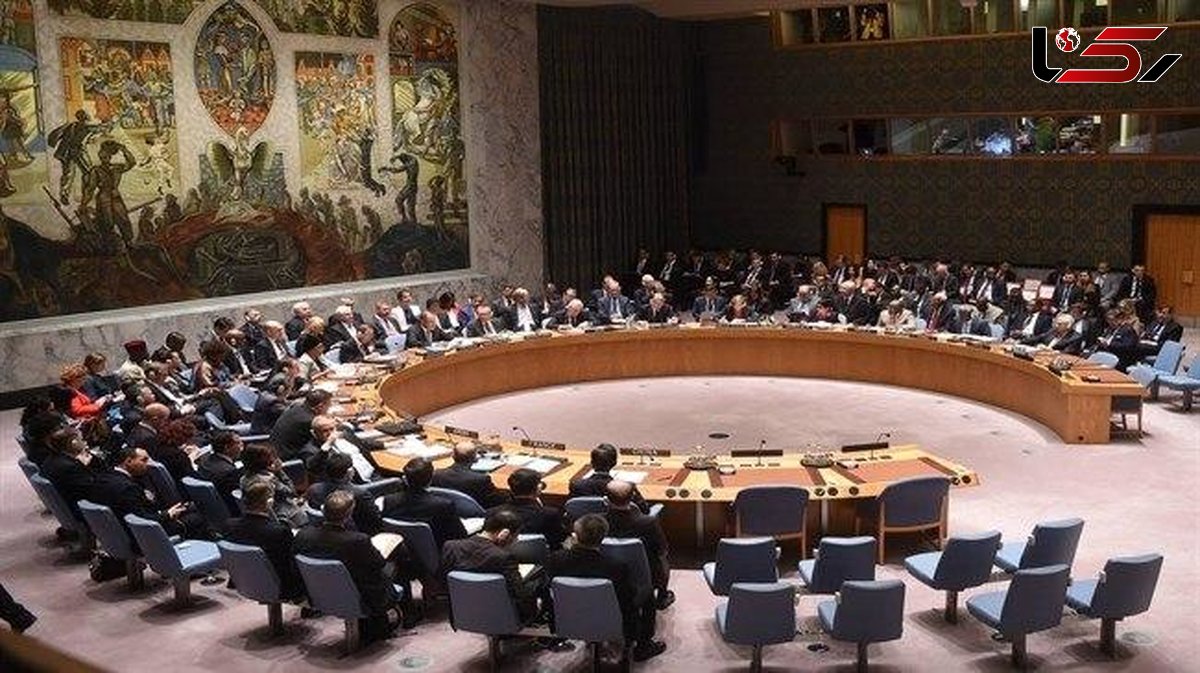Thirty Crucial Days: Snapback Mechanism—Europe’s Last Weapon Against Iran or a Bridge for Negotiation?
Rokna Political Desk: France, Germany, and the United Kingdom have initiated the activation of the “snapback mechanism.”

According to Rokna, the three European countries sent a letter to the UN Security Council to begin the process of re-imposing previously suspended sanctions on Iran within 30 days, while simultaneously expressing readiness for negotiation. The United States welcomed this move, whereas Iran described it as “tension-inducing” and warned that cooperation with the International Atomic Energy Agency (IAEA) could be at risk. Analysts believe the snapback mechanism could double Iran’s economic and political pressure and potentially push the situation toward confrontation or even military conflict.
On Thursday, France, Germany, and the United Kingdom officially informed the UN Security Council that they had initiated the snapback mechanism to restore suspended sanctions against Iran.
The letter emphasized that the process of reinstating sanctions will take 30 days. During this period, the European troika expressed readiness to negotiate with Tehran to reach a new nuclear agreement, which could prevent the full implementation of sanctions.
Simultaneously, U.S. Secretary of State Marco Rubio welcomed the European action, citing it as evidence of Iran’s non-compliance with its nuclear obligations. He stated that Washington would cooperate with Europe and other Security Council members to complete the process of reinstating sanctions.
Rubio also claimed that, despite this process, the United States remains open to direct talks with Iran. According to him, “The reinstatement of sanctions does not negate diplomacy; rather, it reflects our serious determination to pursue it.”
In response to the European decision to activate the snapback mechanism, Iran warned that the move could have serious consequences for Tehran’s cooperation with the IAEA. The Iranian Ministry of Foreign Affairs issued an official statement declaring: “The decision by France, Germany, and the United Kingdom places Iran’s cooperation with the IAEA at risk.” The statement also described the European troika’s action as “tension-inducing, provocative, and unnecessary.”
Seyed Abbas Araghchi, Deputy Foreign Minister of the Islamic Republic of Iran, in a letter to Kaya Kalas, EU Foreign Policy Chief and coordinator of the Joint Commission of the JCPOA, emphasized the dispute resolution mechanism outlined in the nuclear deal. He called on the European Union to refrain from selective interpretations and to facilitate genuine diplomacy to uphold multilateralism. Iran remains committed to diplomacy and is prepared to resume negotiations to achieve a fair and balanced diplomatic solution.
Snapback Mechanism: Europe’s Last Weapon Against Iran or a Bridge for Negotiation?
The “snapback mechanism” is part of the 2015 JCPOA agreement, allowing member states to initiate the restoration of international sanctions via the UN Security Council if Iran violates its commitments.
According to Reuters, the three European countries—France, Germany, and the United Kingdom—have decided to activate this mechanism, while stressing that they will engage in diplomatic talks with Tehran over the next 30 days to find a solution.
The European troika announced that it remains willing to negotiate with Iran to extend arrangements that ensure the survival of the JCPOA. At the same time, they urged Iran to engage in a “constructive diplomacy” process to alleviate concerns over its nuclear activities.
On Thursday, senior diplomats from France and Germany separately emphasized that the activation of the snapback mechanism by the European troika does not signify the end of diplomatic solutions. Jean-Noël Barrot, France’s Foreign Minister, wrote on X: “We are determined to use the coming 30-day period to engage with Iran. Our commitment to diplomacy remains strong to ensure Iran never acquires nuclear weapons.” Johann Wadephul, Germany’s Foreign Minister, described the decision as the start of a “new phase” in negotiations, noting that sanctions reinstatement could simultaneously open a path for political engagement.
Europe Seeks Nuclear Transparency; Iran Fears Intelligence Misuse
The recent Geneva meeting, held after months of intense discussions between Abbas Araghchi and his European counterparts, highlighted a decline in diplomatic engagement. This time, only deputy ministers attended. Despite this, the joint statement by France, the UK, and Germany on the activation of the snapback mechanism signaled a new phase in negotiations, reflecting a de facto deadlock between the parties. The central question now is how diplomacy will unfold. Is a return to the negotiating table still possible, or have the European decisions pushed Iran’s nuclear dossier toward confrontation? Iran has repeatedly warned that activating the snapback mechanism will provoke a severe response, making Tehran’s forthcoming decisions central to developments in the coming weeks.
Trita Parsi, Vice President of the American think tank Quincy Institute, wrote in an analysis that the European troika (the UK, France, and Germany) believes activating the snapback mechanism is a tactical necessity, intended to compel Iran to return to negotiations with the United States and allow the IAEA full access to nuclear facilities, including sites storing 60% enriched uranium.
Parsi explains that while these demands appear reasonable on the surface, Iran views the matter differently. Tehran’s officials distrust the IAEA, believing that some confidential information has been shared with foreign intelligence services, which facilitated the assassination of Iranian nuclear scientists by Mossad. From Tehran’s perspective, increased transparency about uranium stockpiles could pose not a trust-building guarantee but a potential risk, possibly triggering new targeted attacks or even U.S. airstrikes.
Parsi also highlights a fundamental contradiction: Iran previously sat at the negotiating table while facing bombings from Israel and the U.S. Now, the European troika asks Tehran to return to talks without imposing similar conditions on Washington to halt military attacks.
According to Parsi, deep disagreements over enrichment, limited diplomatic opportunities under the Trump administration, and growing Israeli pressure for confrontation all make resuming negotiations likely to fail, unless both sides show flexibility on the sensitive issue of uranium enrichment. She warns that returning to talks under such conditions could not only fail to produce a lasting agreement but may even accelerate the onset of conflict, which she implicitly suggests may be the very objective of certain actors.
Send Comments